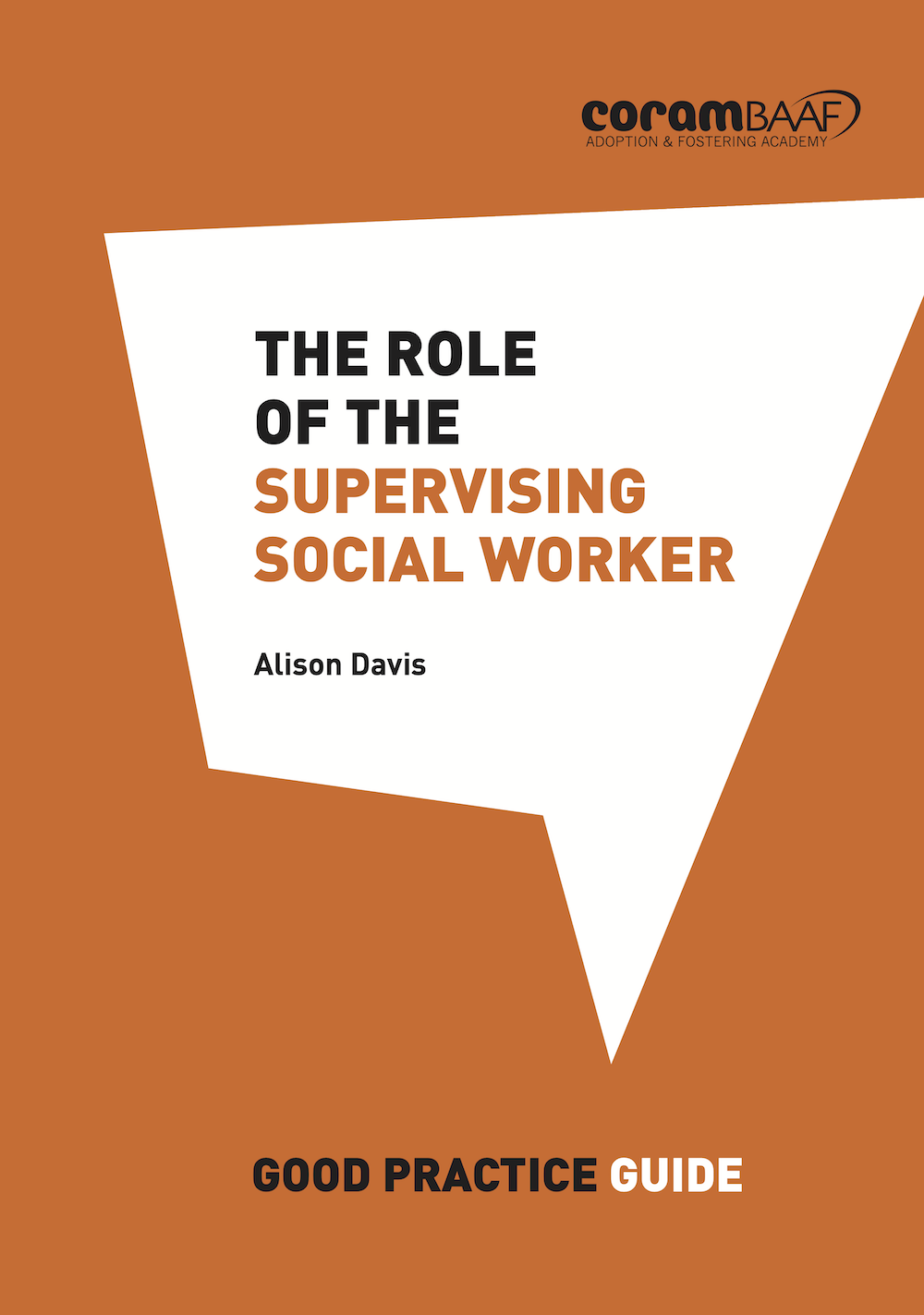
Effective supervision and reflective practice for supervising social workers
Get 25% off today!
In celebration of our upcoming Members’ Week (23-27 September), our training team is excited to announce a special summer sale. Get 25% off selected open courses! This special offer is valid from 11am (UK time) Monday 8 July until 5pm Friday 27 September. The sale applies to selected titles in August and September from our open course programme. Add this course to your basket and you will see the discount applied at checkout.
This course is designed to support those who have previously attended “The role of the supervising social worker in supervising and supporting foster carers” and now looking to develop their practice further.
On this course you will explore how good quality, challenging supervision can contribute to a high quality of care provided by foster and kinship carers and to establishing and maintaining effective working relationships. We will explore the balancing the potentially conflicting role of the supervising social worker, who needs to balance providing support with the need to sometimes have difficult conversations too.
Further areas explored include foster care reviews and managing allegations. This course will combine theory, practical exercises and opportunities to reflect, the learning needs of more experienced social workers.
LEARNING OUTCOMES
· Understand and apply the regulatory context and purpose of foster carer supervision.
· Explore ‘Professional Curiosity’ when supervising carers: moving away from concept of carers self-reporting to evidence based practice and recording
· Consider the interface of the role with safeguarding duties and outcomes for children in care
· Increase confidence in balancing the conflicting roles of supervising social workers
· Consider connections between effectiveness of the supervision and factors such as placement stability and the quality of the foster care experience, for both children and the carers
· Increase confidence in manage allegations and standards of care and capability issues
WHO SHOULD ATTEND?
This course is for supervising social workers and social work managers in fostering and kinship care services.
It is anticipated that participants will have been in post for at least 12 months and completed “The role of the supervising social worker in supervising and supporting foster carers” at least 6-12 months previously.
On open courses we can accommodate a maximum of four delegates from one organisation only. For a larger group booking, please see the information on commissioned training.
For social workers, reflection on this session may contribute to your continuing professional development (CPD).
PRESENTER
Karen Needler, Associate Trainer, CoramBAAF.
RECOMMENDED READING
The Role of the Supervising Social Worker
Author: Alison Davis (2022)

Supervising social workers have an essential role to play in foster care and are a key link between the fostering service and foster carers. However, the importance of this role to successful foster care is often overlooked. The supervising social worker must provide support and advice to foster carers, while fulfilling their role as supervisor, ensuring that the fostered child feels secure and is thriving, and verifying that the carer meets the fostering service’s requirements. The role also involves many challenges; workers must, for example, build close professional relationships while maintaining appropriate boundaries, manage allegations against carers, work with carers who may present challenges, and deal with their own feelings in emotional situations. It is essential for anyone taking on this role, or managing supervising social workers, to understand these varied demands, and the need to be a supporter, teacher, inspector, assessor, coach, mediator, networker, colleague, and counsellor.
This comprehensive, considered and highly practical guide is a vital learning tool and companion for all supervising social workers.
TIME
Registration 9.45 am
Start 10.00 am*
Close 4.00 pm*
*Times subject to change
FEES
Full or associate CoramBAAF member - £158.00 + £31.60 VAT = £189.60
Individual CoramBAAF member - £120.00 + £24.00 VAT = £144.00
Non-member - £220.00 + £44.00 VAT = £264.00
CONTACT
Full or associate CoramBAAF member - £125.00 + £25.00 VAT = £150.00
Individual CoramBAAF member - £105.00 + £21.00 VAT = £126.00
Non-member - £155.00 + £31.00 VAT = £186.00
MEMBERSHIP DISCOUNT FOR OPEN COURSES
Log into your account before checkout to receive your membership discount. Don't have a login? Your organisation may already be in membership, if so set up your account quickly and easily here. Not a member of CoramBAAF? Read about the benefits of CoramBAAF membership for individuals and organisations.
Need help logging in? If you’re having trouble logging in, please see this page for help.
£220.00
Sorry, but this event has passed and tickets can no longer be purchased.
